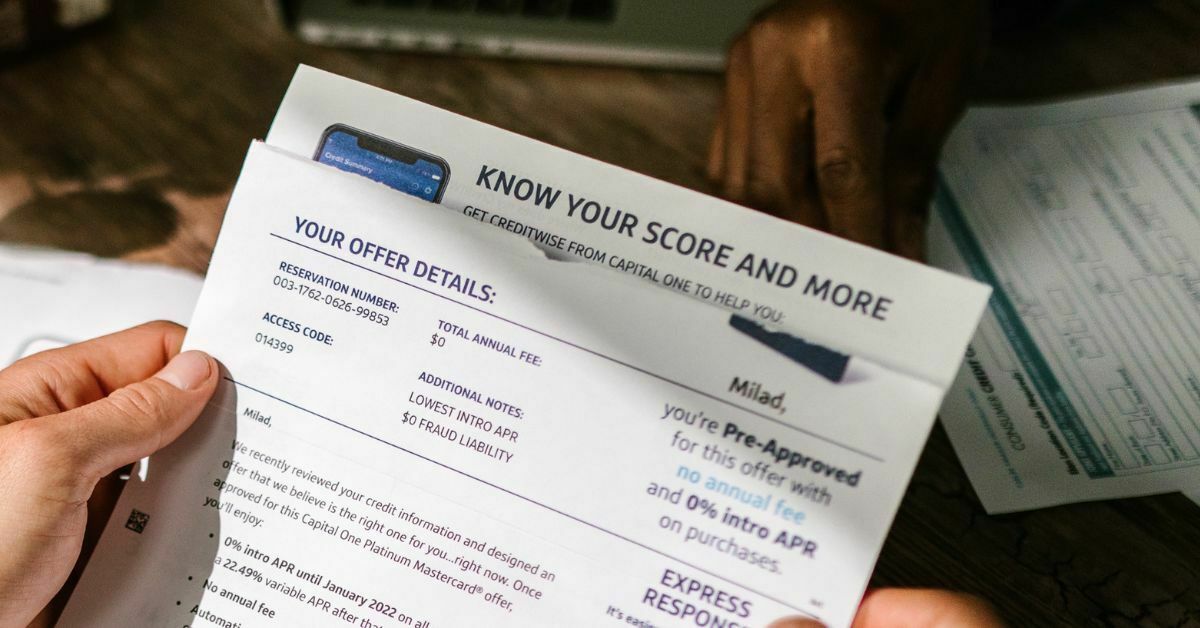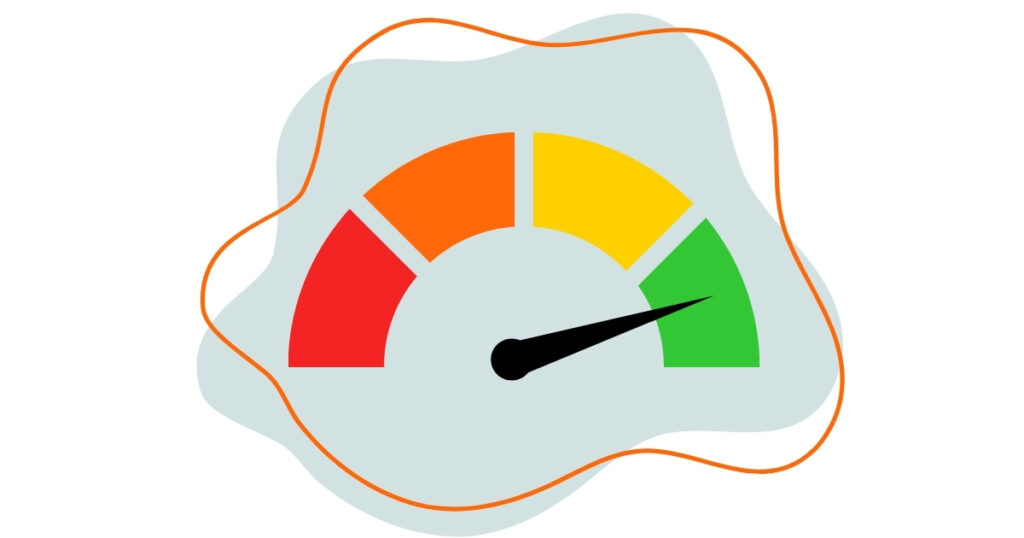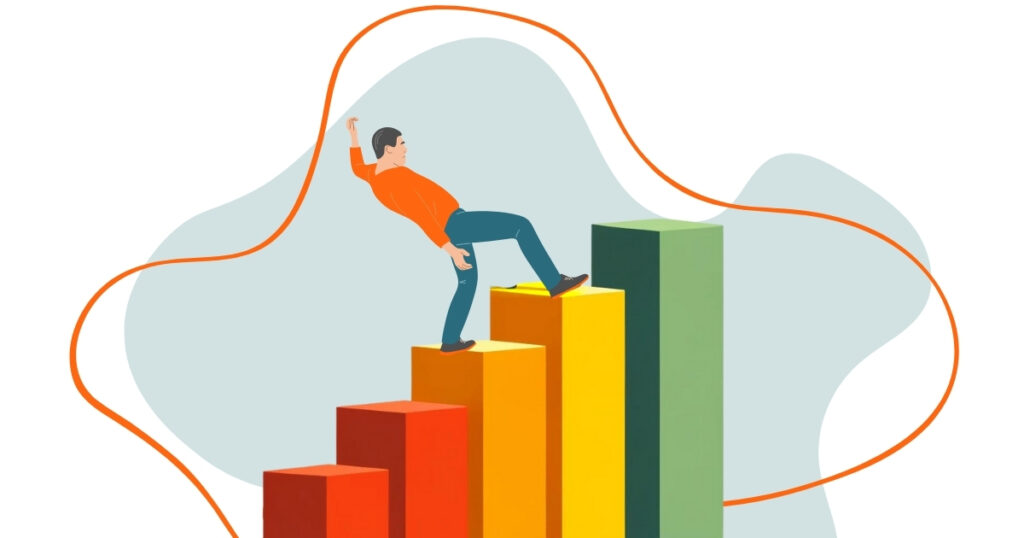
When you apply for credit, your credit score plays a crucial role, influencing how banks and lenders view your financial reliability. Understanding the contrast between a strong and weak credit score is crucial for securing approval and landing top-notch offers.
Key Takeaways
- Importance of Credit Score: Your credit score acts as an indicator of your financial reliability to lenders. A higher score reduces perceived risk.
- Ideal Score Range: Achieving a credit score above 610 provides a good foundation, while scores over 800 are deemed exceptional, offering more favourable loan conditions.
- Factors Influencing Credit Score: Your score is determined by how well you manage your debts, the diversity and age of your credit accounts, and more. You’re entitled to a free credit score check each year, which can help you understand and improve your financial status.
What is a Credit Score?
Your credit score, a crucial three-digit figure ranging from 300 to 850, is derived from a calculated formula. This formula takes into account your payment history, the length of your credit history, your current debt, and the total number of credit facilities under your name. This vital data is collected from your credit reports, compiled by credit bureaus to assist lenders in their decision-making process. Your score ranges from outstanding to poor, significantly influencing the interest rates offered to you. Additionally, this score plays a critical role in the approval or rejection of your loan applications, essentially reflecting the risk lenders take in extending credit to you.
The Importance of a Credit Score
Two essential factors come to mind when it comes to understanding the importance of your credit score. Firstly, your rating is a major indicator of the associated risk you will be to credit providers. This is especially true upon your application for a home, or personal loan is accepted or rejected. Secondly, your score indicates the possible interest rate credit providers will offer you if you require a loan. Regarding the interest to repay on a loan, higher scores indicate a greater ability to repay such a loan and are deemed a lower risk. Credit providers will reward those with such a credit score with lower interest rates. At the same time, those with a lower credit score may find that they are deemed a higher risk. Credit providers minimize the risk by charging higher interest rates on such credit scores.
Curious about what score to aim for? Our Experian Review breaks down Experian’s scoring models and what constitutes a ‘good’ score.
Who Calculates Your Credit Score and the Methodology
A licensed credit bureau undertakes the responsibility of compiling your credit transaction dossier for the bank. Your credit score is subsequently determined through an analysis of several key aspects:
- The consistency and timeliness of your debt repayments.
- The total amount of debt you’re carrying.
- The variety of credit types you’ve applied for and the frequency of these applications.
- The length of time your credit accounts have been open.
- The proportion of your available credit that you are utilizing.
- Any instances of debt defaults resulting in bankruptcy or a court judgment against you.
These factors collectively influence the calculation of your credit score, providing lenders with a comprehensive understanding of your financial reliability.
What makes a credit score ‘good’? Understanding the criteria can help you know where you stand and how it affects your loan chances. Learn more about the Minimum Credit Score for a Personal Loan to see how it impacts your options.

Credit Score Ranges
Credit scores range from under 300 to 850, categorized into No Credit, Poor, Fair, Good, Very Good, and Excellent. Scores reflect credit history and risk level: under 300 indicates no credit history, 300-579 is poor, 580-669 fair, 670-739 good, 740-799 very good, and 800-850 excellent. Higher scores show better financial responsibility and lower risk to lenders.
An In-depth Overview of Credit Scores
| Credit Score Range | Rating | Description |
|---|---|---|
| Under 300 | No Credit | At this point, you’re starting with a clean slate, lacking any credit history due to the absence of credit accounts. It’s an opportune time to begin building a positive credit score. |
| 300-579 | Poor | A poor credit score reflects a troubled credit history, marked by multiple defaults across various credit products and lenders, or possibly by bankruptcy. Such marks significantly impede your ability to obtain new credit. Consulting with a financial advisor to improve your credit score is advisable. |
| 580-669 | Fair | Falling into the “fair” range typically indicates that your credit history has some flaws, but no serious issues. While your options for interest rates may be somewhat limited, obtaining credit is still possible. |
| 670-739 | Good | A score in this range is considered average, making you eligible for competitive interest rates. However, securing certain types of credit at prime rates may pose some challenges. It’s helpful to explore various loan options to find the best fit for your circumstances. |
| 740-799 | Very Good | Achieving this score indicates a lower risk to lenders, highlighting your creditworthiness. Making timely payments and avoiding defaults are crucial for maintaining this status, which opens doors to preferred financial products. |
| 800-850 | Excellent | An excellent credit score is the result of consistent financial responsibility, leading to potentially lower interest rates on credit cards, loans, and mortgages. This score positions you as a minimal risk for late payments and defaults. |

The Significance of Having a High Credit Score
A high credit score serves as a strong indicator to lenders that you are a low-risk borrower. When you apply for credit, such as credit cards or loans, lenders examine your credit score closely to evaluate your financial reliability. A high score reflects positively in your credit report, demonstrating traits of financial responsibility and dependability.
This favorable financial profile, evidenced by timely bill payments and prudent credit management, positions you as an appealing candidate to lenders. It not only increases the likelihood of your credit applications being approved but also places you in a favorable position to receive the most competitive interest rates and generous credit limits.
Essentially, a high credit score unlocks doors to superior financial opportunities, signaling to lenders that you are skilled at managing your finances and are likely to fulfill your repayment obligations without difficulty.
Implications of a Low Credit Score
Having a low credit score can significantly impact your financial dealings, especially when seeking credit. This score reflects your creditworthiness, with a lower number often signaling to lenders that you pose a higher risk. For example, a history of defaults on debt as documented in your credit report can result in a diminished score.
When confronted with a low credit score, you may discover that lenders are reluctant to extend credit to you. If they do, it might come with less favorable terms, such as higher interest rates. In some instances, your credit application could be outright denied. However, it’s crucial to remember that a low credit score isn’t a permanent condition.
There are steps you can take to improve your credit score. By addressing the factors contributing to a low score, such as clearing outstanding debts and ensuring timely payments in the future, you can gradually rebuild your creditworthiness. This enhancement can unlock more credit opportunities under better terms in the future.
Wondering how you can boost your credit score after learning what counts as a good one? Dive into our comprehensive guide on how to improve your credit record. This resource is packed with actionable tips and strategies to help you enhance your creditworthiness and secure your financial future.

How to Check Your Credit Score in South Africa
So now that you understand what these ratings mean for your finances, how exactly do you track and review them? Looking to establish your credit score rating can quickly be done and is free with no influence on your credit rating. Options to monitor your rating can be based on a yearly, monthly, and weekly basis. Credit bureaus offer a free credit check report, once per year. Additionally, you may find online sources that may be able to assist you in checking your credit score rating. Certain providers will even review your credit score on your monthly bank statements.
Steps to Check Your Credit Score in South Africa
- Choose a Credit Bureau or Credit Reporting Agency: South Africa boasts multiple credit bureaus, including TransUnion, Experian, and Equifax, among others. These agencies compile credit reports and scores based on your financial conduct.
- Request a Free Credit Report: According to the law, every South African citizen is entitled to one free credit report per year from each of the credit bureaus. This report encompasses your credit score, credit account history, and other financial details.
- Online Access: Most credit bureaus provide online services, enabling you to request your credit report and score via their websites. Typically, you’ll need to register and provide personal identification to access your information.
- Understand Your Score: Upon receiving your credit report, it will feature your credit score along with comprehensive information about your credit history. Credit scores in South Africa typically range from 300 to 850, with higher scores indicating better creditworthiness.
- Review for Accuracy: Thoroughly scrutinize your credit report for any inaccuracies or fraudulent activities. If you detect errors, contact the credit bureau to dispute them and request corrections. Rectifying negative errors can potentially enhance your credit score.
- Continuous Monitoring: Consider utilizing credit monitoring services offered by credit bureaus or third-party companies. These services typically notify you of any changes to your credit report, helping you stay abreast of your credit status.
Trusted Credit Score and Report Providers in South Africa
This table outlines some of the most reputable and authoritative websites in South Africa that provide comprehensive information and services related to credit scores and reports. These platforms offer valuable resources for obtaining credit scores, understanding credit health, and managing credit effectively.
| Provider | Services Offered | Key Features |
|---|---|---|
| Experian South Africa | Free credit reports through “My Credit Check” portal | Credit education, identity theft protection, credit management resources |
| TransUnion South Africa | Free annual credit reports, subscription services | Educational resources on credit scores, regular monitoring services |
| ClearScore ZA | Free access to Experian credit scores | Guidance on credit scores, tools for credit management |
| XDS Credit Information Bureau | Detailed credit reports and scores, analytical services | Extends services beyond South Africa, analytical support |
Curious about how credit scores work outside South Africa? Our comparison of American and South African credit scores will help you understand the key differences and similarities, offering a global perspective on credit management.
About Arcadia Finance
Arcadia Finance simplifies the loan process, making it more efficient. Through our service, you can fill out a free application and receive loan offers from up to 19 lenders. We guarantee the reliability and compliance of all our lending partners with the regulations of the National Credit Regulator of South Africa.

Factors That Can Negatively Impact Your Credit Score
Several factors below you can influence your credit rating. Will find a list of what will lower your rating.
Limited Credit History
Not having debt or not using credit means creditors will not have any payment history from other lenders. This hurts your credit score because credit agencies can’t establish your ability to repay should they offer you a loan.
Late Payments
Late payments on bills and debts will lower your score as late payments are reported to credit bureaus. This indicates to lenders financial hardship and irresponsibility of credit.
Debt and Collections
A significant factor in low credit scores is that you should fault your repayments to the point that they are sent to a debt collection firm. This indicates to lenders a tendency to stop making payments to creditors.
Current Debt
Holding numerous credit accounts can result in an accumulation of debt, which raises a red flag for lenders assessing your creditworthiness. High levels of debt not only increase your financial burden but also diminish your credit score, as they raise doubts about your capacity to manage and repay borrowed funds responsibly. Wise financial management entails restricting the use of credit products and prioritizing the reduction of existing debts to enhance your credit score.
Hard Inquiries
Each time you apply for credit, the lender conducts a ‘hard inquiry’ to evaluate your creditworthiness, which can marginally lower your credit score. While the impact of a single inquiry may be minimal, multiple inquiries within a short period can accumulate, casting a negative reflection on your credit report. It’s important to carefully assess the necessity of each credit application, ensuring that you only apply when absolutely essential to minimize the impact on your credit score.
Maxing Out Credit Cards or Cancelling Credit Cards
Credit cards are great for building credit. However, in the case where you exceed the limit on your credit or on several credit cards where only the minimum repayments are made, this negatively affects your credit rating. Additionally, the closure of a credit card will negatively affect you as you will need some form of positive credit to show to lenders. Making multiple hard credit inquiries. Hard inquiries for credit can hurt your overall rating. Especially if denied for a loan or credit card.

11 Strategies for Enhancing Your Credit Score
- Applying for multiple loans simultaneously is a warning sign to lenders, indicating financial instability. To avoid this negative perception, limit your loan applications.
- Emphasize punctuality and completeness in paying your accounts. Whenever possible, strive to pay more than the minimum required installment to showcase financial responsibility.
- Manage your debt wisely by using available credit sparingly. Consider reducing your credit limits to signal controlled financial behavior.
- Resist the temptation to spend up to your credit limit. Exercising restraint can have a positive impact on your credit score.
- While debt is generally discouraged, having active accounts is crucial for establishing a credit history. This allows credit bureaus to accurately assess your risk level when applying for significant loans like home mortgages.
- Prioritize reducing your credit card debt, as they often incur the highest interest rates. Maintaining low credit card balances can significantly improve your credit score.
- Ensure that your total debt does not exceed one-third of your gross income. Maintaining a lower debt-to-income ratio is favorable for your credit profile.
- Closing accounts after clearing the balances can enhance your credit score by demonstrating that you are a lower-risk borrower.
- Avoid revolving credit schemes, which are known for high interest rates and can quickly escalate debt.
- If you’re considering a joint bond application, the credit health of your partner is equally important. Banks will assess both parties’ credit histories in their decision-making process.
- If you find yourself unable to make full account payments, negotiate with your creditors for lower installment payments over a longer period. This approach can prevent defaults from further damaging your credit score.
Conclusion
In South Africa, a good credit score typically falls within the higher range of the credit rating scale, generally above 600. This score mirrors a borrower’s financial reliability and creditworthiness, increasing their likelihood of receiving favorable terms on loans and credit. For South Africans, maintaining a good credit score is imperative for accessing financial products and services on advantageous terms. It emphasizes the significance of responsible financial behavior, including timely payments and prudent credit management, as essential elements in building and preserving a robust credit profile.
Frequently Asked Questions
A good credit score in South Africa is typically regarded as any score above 600 on a scale from 300 to 850. Scores in this range indicate to lenders that you are a lower-risk borrower, which can make it easier to obtain loans and may qualify you for better interest rates.
Your credit score in South Africa is calculated based on your credit report, which includes your history of making payments on time, the amount of debt you currently have, the length of your credit history, the types of credit you have used, and the number of inquiries into your credit report. Credit bureaus analyze this information to assign your score.
Your credit score matters because it influences lenders’ decisions on whether to offer you credit, the amount of credit, and at what interest rate. A higher score can lead to better loan terms, lower interest rates, and can even affect your ability to rent housing or get certain jobs.
Improving your credit score entails several steps, such as paying your bills punctually, decreasing your debt load, refraining from frequent applications for new credit, and rectifying any inaccuracies on your credit report. Maintaining responsible financial management consistently over time will contribute to score enhancement.
It’s a good practice to check your credit score at least once a year. This helps you understand where you stand financially and allows you to identify and rectify any errors on your credit report promptly. Some services allow you to monitor your credit more frequently without negatively impacting your score.



